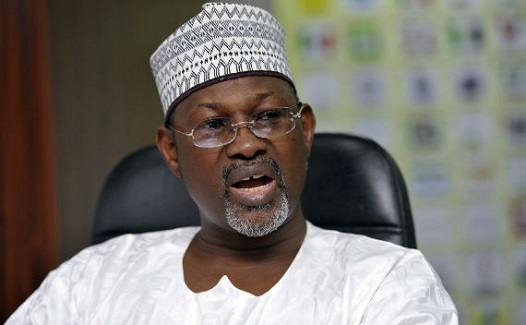Politics
‘Remove hindrance to electronic voting,’ Jega charges National Assembly

The former Chairman of the Independent National Electoral Commission (INEC), Prof. Attahiru Jega, on Saturday urged the National Assembly to remove the constitutional provision that prohibits the use of electronic voting in Nigeria.
Jega, who made the call in his address titled: “Politics, Governance and Leadership Recruitment in 21st Century Democracy,” at a workshop organised by Kwara Visioners Network for Rural Development, faulted the National Assembly for opposing the use of electronic transmission of elections results in the Electoral Amendment Bill.
He insisted that electronic voting is cost-effective and easier to use while manual voting undermines the integrity of elections.
He said: “The National Assembly after 2019 elections promised to review the electoral legal framework which will to improve the integrity of the electoral commission.
“The most important issue that can add value to the integrity of elections they are jettisoning that because of self-serving interest. We have upscaled the integrity of the Nigerian electoral commission with incremental use of technology.
“Now we have got to a point where the pilot scheme that has been done in INEC since 2012 of using electronic transmission of results INEC in itself said it can rarely use it in the 2023 elections. In fact, INEC has used it in some elections in parts of the country. It is a pilot scheme that all the stakeholders have been observing and said is good.
“The next thing is to remove the major hindrance in the use of technology because there is a constitutional provision which says that electronic voting is prohibited.
READ ALSO: Utomi, Jega, others float coalition to ‘rescue Nigeria’
“Many Nigerians who are in support of electronic voting are blaming INEC for saying it cannot use electronic voting. They have forgotten that there is a legal provision that says electronic voting is prohibited.
“Now people are hoping that the National Assembly will remove that encumbrance, not necessarily for INEC to plunge into electronic voting in 2023 but for it to identify the best electronic voting system for the country.
“People are also saying that electronic transmission of results is easier to deploy.
“It is most cost-effective compared with the use of electronic voting. So why not begin with the electronic transmission of results. On the one hand, the lawmakers said that INEC is permitted to do electronic voting provided it does not do electronic transmission of results.
“In fact, what they are saying is that they are not allowing INEC to do electronic voting because they do not want electronic transmission of results.
“Unfortunately, the National Assembly is opposed to the use of electronic transmission of results. From my personal experience in INEC, one of the major ways in which the integrity of the electoral process is undermined is in the manual transmission of results from the polling units to ward, local, and constituency levels.
“If the electoral commission is impartial and tries hard to improve the integrity of the electoral process, if the dominant actors (political parties and candidates) lack integrity and want to win by either hook or crook, they will be undermining the integrity of the electoral commission.
“That is what we have seen. We cannot compare the elections of 2011, 2015, and even 2019 with 2007. We have gone some ways in lifting the bar. But a lot needs to be done to improve the integrity of the electoral process.”
Join the conversation
Support Ripples Nigeria, hold up solutions journalism
Balanced, fearless journalism driven by data comes at huge financial costs.
As a media platform, we hold leadership accountable and will not trade the right to press freedom and free speech for a piece of cake.
If you like what we do, and are ready to uphold solutions journalism, kindly donate to the Ripples Nigeria cause.
Your support would help to ensure that citizens and institutions continue to have free access to credible and reliable information for societal development.




















